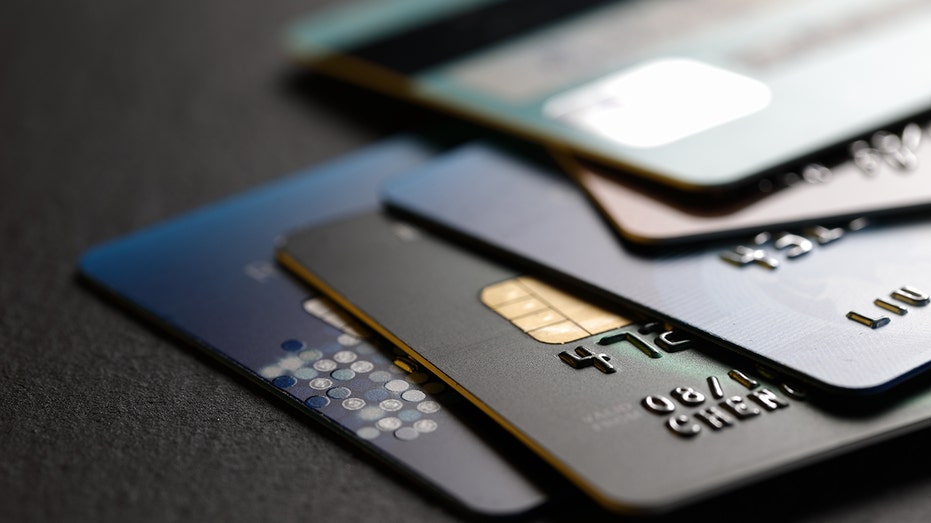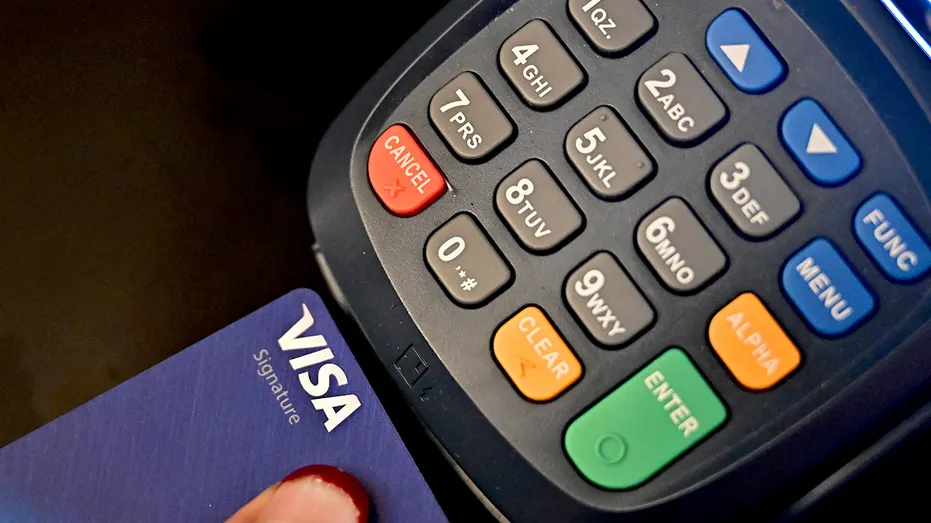Ramsey Solutions personality Jed Warsaw on the younger generation living with their parents, 'buy now later' risk and how to best diversify stock allocations.
Credit card swipe fee, That's among the highest operating costs for retailers, according to industry experts, taking a bite out of household budgets.
When a credit or debit card is used, banks and credit card networks will charge retailers a fee to process the transaction. This is known in the industry as an interchange fee, although some experts also refer to it as a “swipe fee”.
Swipe fees for credit cards average more than 2% of transactions, but they can be as high as 4% for some premium rewards cards, according to the National Retail Federation (NRF), the nation's largest retail trade group.
For debit cards, fees are capped by the Federal Reserve at 21 cents per transaction plus 1 cent for fraud prevention and 0.05% of the transaction for fraud recovery, but smaller banks Cards are discounted
Retail trade group calls for bill to pass that would cut credit card 'swipe fees': Here's why
All told, these fees cost retailers $170 billion a year. That's since 2001, when fees were about $20 billion a year, according to the NRF.
But they are not exploited by retailers. Instead, they're “built into the price of everything we buy,” Merchant Payments Coalition executive committee member Doug Cantor told Fox Business. Today, these fees cost families more than $1,100 per year

In this photo illustration, a credit card is used for gasoline on February 07, 2024 in San Anselmo, California. (Photo illustration by Justin Sullivan/Getty Images) / Getty Images)
Kantor said the fee is a huge blow to purchasing power. Given that they're “a percentage of what you spend, we've seen it explode in the face of high inflation,” Kantor, who also serves as general counsel for the National Association of Convenience Stores, said.
According to Dylan Zion, NRF's senior director of government relations, increased use of credit cards has driven the total amount of charges. Another key factor, Zion added, is that Visa and MasterCard control about 80% of the credit card market.
Small businesses are eligible for relief from increasing credit card swipe fees
“What market leverage has allowed them to do is essentially raise fees or implement new fees at their discretion,” Zion said. “There's really no competitive pushback. There's no reason for them to work with retailers or other merchants to find more common sense fees and fee structures because, again, they're the biggest and main players in town.”
This “gives them free rein to do the kind of enforcement practices that increase their revenue and really leaves no recourse for retailers and other merchants,” he added.
Big retailers have more flexibility when it comes to how much cost they can absorb, Zion said. “But when you're talking about a … mom and pop, those margins are razor-thin. And that's an area where they have no real negotiating power,” he said.
Kantor says the retailer's profit margin averages 3%.

Stack of multicolored credit cards on black background (iStock/iStock)
Nick Simpson of the Electronic Payments Coalition told Fox Business that all payments have costs and that “credit card processing costs are among the lowest — even lower than cash.”
EPC published a report in October, citing data from Javelin Strategy and Research, showing that the average credit exchange rate in the US has remained steady at 1.8% since 2017. Meanwhile, the average debit exchange rate from 2014 to 2022 dropped to 0.73%. to the Federal Reserve.
According to Simpson, card processing costs provide business benefits in the form of things like lower bounced checks, faster payments and less fraud. For consumers, these fees help provide fraud protection, security and rewards.

A credit card is placed into a credit card machine to process a payment in La Puente, California. (Frederick J. Brown/AFP via Getty Images/Getty Images)
Matt Schultz, chief credit analyst at LendingTree, said there is no indication that the cost of the product will drop if the fee goes away. When the federal government capped fees for debit cards, for example, “we saw that debit card rewards went up pretty much overnight. But what we didn't really see was prices go down,” Schultz said.
Still, the matter reached Washington late last year. In November, members of the Senate Judiciary Committee slammed Visa and MasterCard executives for high credit card swipe fees.
The NRF is pushing for passage of the proposed Credit Card Competition Act, which it says would end the monopoly power of Visa and MasterCard by requiring cards from the nation's largest banks to be routed through at least one competing network such as NYCE, Star or Shazam. In the Visa or Mastercard network.
Get Fox Business on the go by clicking here
Kantor previously argued that credit card competition laws would introduce market competition by creating incentives for innovation in pricing and service that would benefit consumers and the economy alike.
Visa told Fox Business that it is constantly improving its network to better serve the businesses and customers that rely on the company.
“Everything we do is designed to make paying and getting paid with Visa more convenient, secure and reliable,” Visa said.
Mastercard deferred comment to the Electronic Payments Coalition.